Inside the black market smuggling operation at Silverwater jail – where a $5 Buprenorphine prescription patch is worth $1000 behind bars, writes JONICA BRAY
It’s a sweltering day in Sydney’s Silverwater maximum security prison as I watch specialist prison guards enter the basketball court for a surprise cell shakedown.
Contraband is an ongoing challenge in prisons around the world – where weapons, drugs, alcohol and small mobile phones are in constant demand behind bars.
Without intervention, prisoners could leave prison richer than they arrived, but NSW Corrections Minister Anoulack Chanthivong is cracking down on the black market.
“If it’s there, we’ll find it,” says Mr. Chanthivong. “If anyone tries to bring it in, you’ll get caught.”
The Security Operations Group team is over twenty strong and looks intimidating in their uniforms with gas grenades strapped to heavily padded vests.
But despite their looming presence, my attention isn’t diverted from four specific members of the team.
Dubbed their “most valuable asset,” the highly trained dogs Sassy, Hank, Chloe and Bruno are led by SOG’s first-ever female manager, Vanessa Allen.
“The K9 unit within the SOG plays a critical role in this effort, allowing us to accurately pinpoint the locations of the contraband so it can be located and removed,” Ms. Allen said.
Silverwater’s Security Operations Group is an intimidating sight as they are depicted marching towards the random cell shuffle
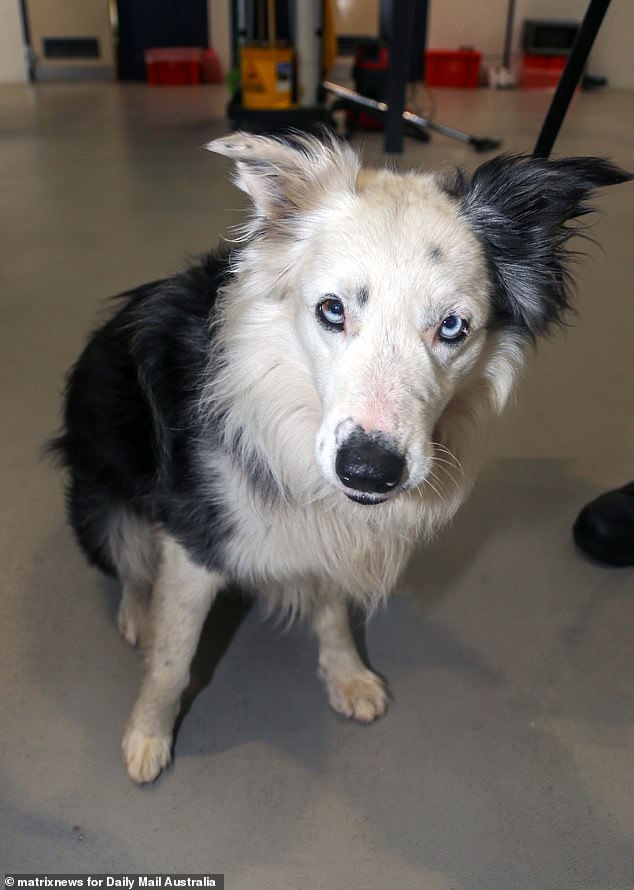
Trained sniffer dog Hank is trained to detect lithium and helps track cell phones

The prisoners had not expected the search with dogs
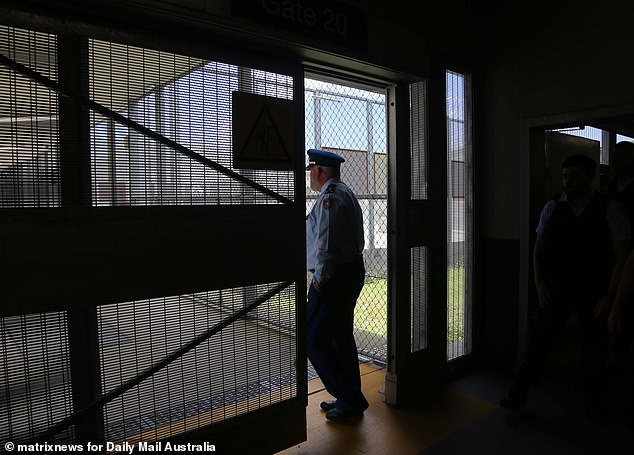
The Metropolitan Remand and Reception Center maximum security correctional facility in Silverwater (pictured) houses dangerous criminals

The convicted murderers and rapists quickly followed the instructions
‘They make our work a lot easier. Without them we simply couldn’t do it.’
Labrador Sassy is a passive drug-detection watchdog, while border collie Hank is a phone-detection dog highly trained to sniff out lithium.
Then there are the Belgian Malinois Toa and the German Shepherd Bruno, both multi-purpose dogs, including protection skills.
You can be sure that their bark is no worse than their bite.
Ms. Allen’s team is the first to be deployed to conflict, riots and hostage situations, having worked their way up from other departments to their highly qualified positions.
Bruno’s lonely bark echoes through the hallway, alerting the prisoners to their impending arrival, the air full of anticipation.
The prisoners are ordered to march two by two to the courtyard where a single cell block of 45 men, who have finished work for the day, are enjoying the sun.
It’s an intimidating sight and their presence is clearly respected as the men immediately look towards the fence with their hands up.
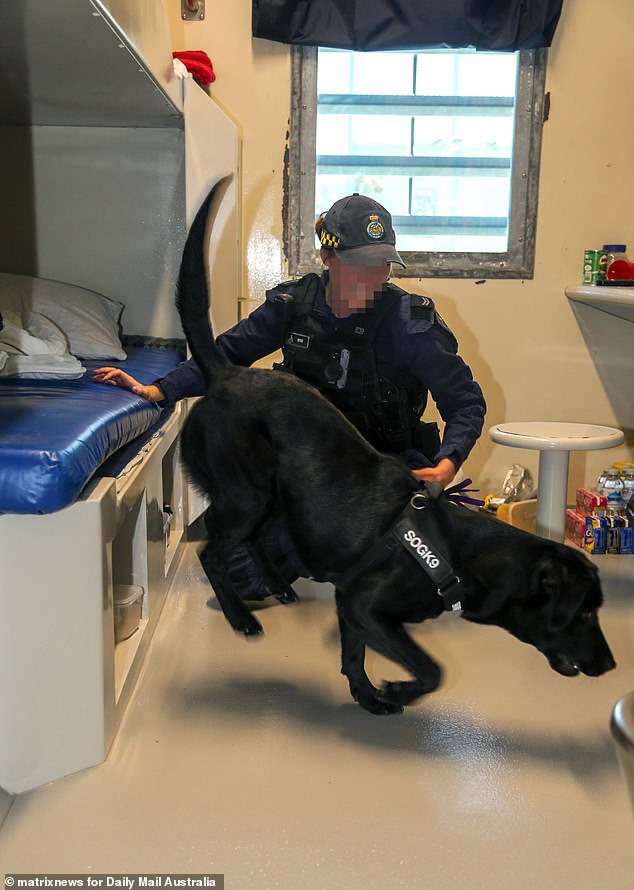
Sassy is trained in drug detection and has surrendered the cell once
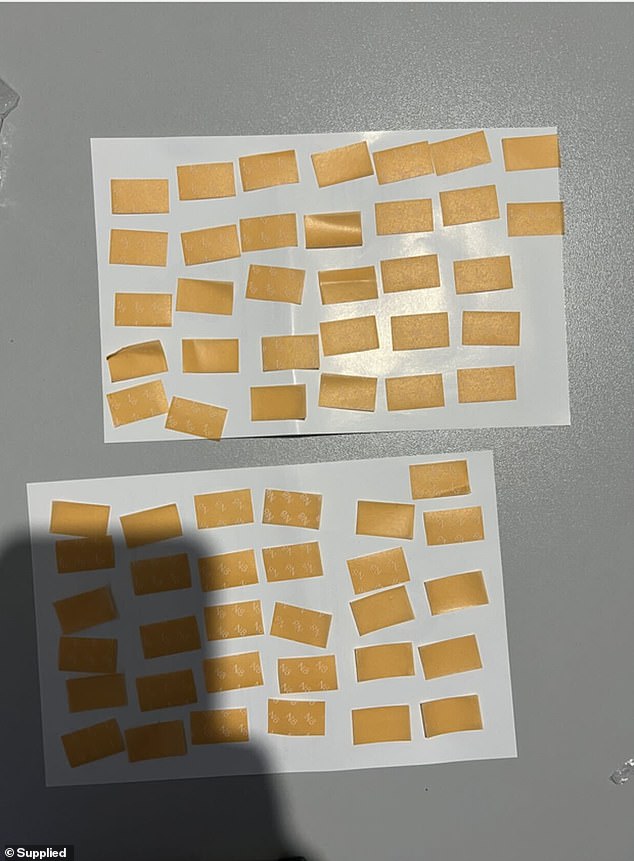
Buprenorphine transdermal patches have a high value in prison and are easy to smuggle in due to their size
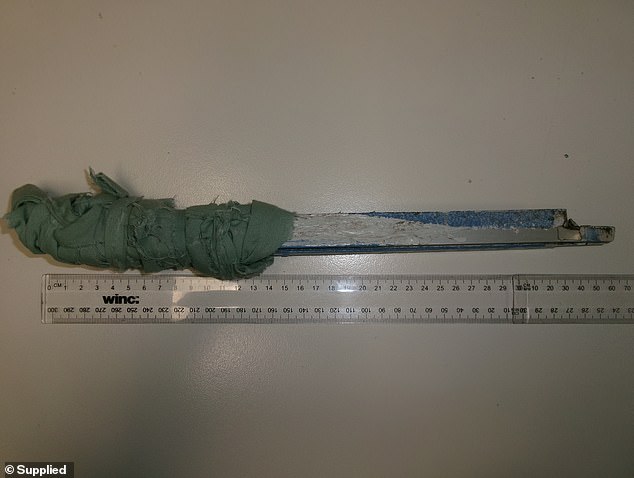
This makeshift prison knife is made from parts of a window frame
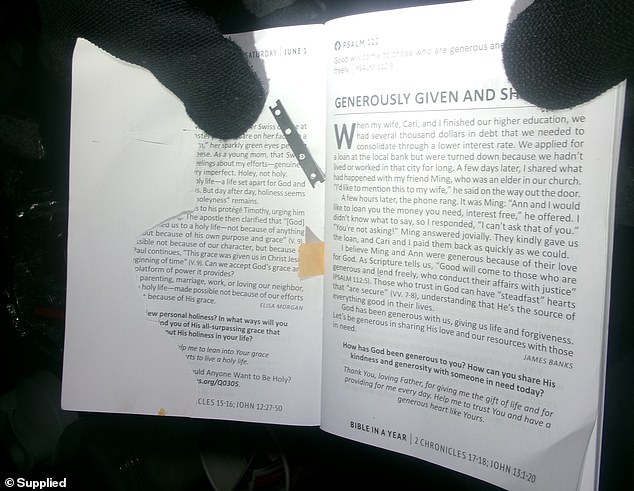
This potentially deadly weapon was found hidden in a Bible
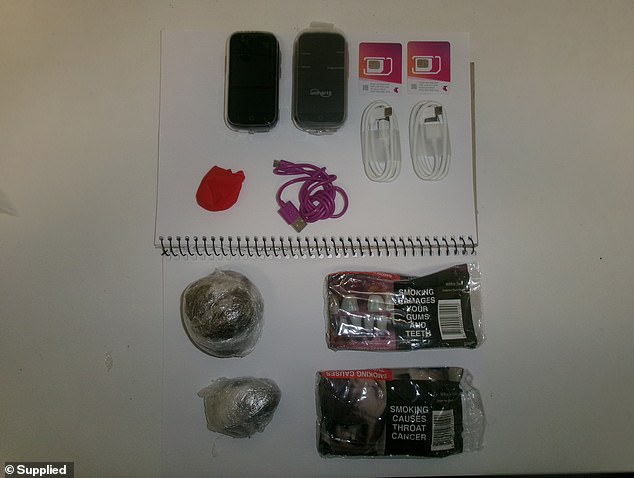
Cell phones are highly prized on the prison black market
Inmates housed in this facility have committed a variety of serious crimes, from assault and drug offenses to serious sexual crimes and murder.
Prescription drug buprenorphine, known as ‘bupe’, is currently the biggest contraband problem facing prisons across Australia.
It is used for pain management and for opioid addictions such as heroin. It’s a cheap $5 band-aid, but can be worth up to $1,000 per strip to desperate prisoners if supplies run out.
Intelligence officer Mandeep Singh says bupe could flood the prison black market because of its powerful effects and how easy it is to conceal.
‘We monitor activity every day. Eavesdrop on telephone conversations, check incoming and outgoing mail, give tips and try to intercept anything that could pose a threat.
“When prisoners are caught with contraband, we find out where it came from and how they got it.”
Prisoners at the Metropolitan Remand and Reception Center in Silverwater all have access to iPads and are given an hour a day to make phone calls for their mental wellbeing.
But illegal mobile phones are still a hot item.
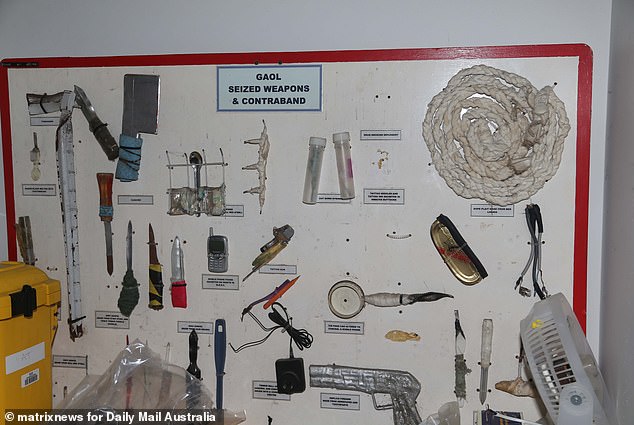
Previous contraband found in prison
“Some prisoners have an AVO and are not allowed to contact people,” explains Immediate Action Team Correctional Officer Patrick Boyd.
‘And others use them to organize their crime. Phones these days are becoming very small and increasingly difficult to find.’
Sassy stops, she has found her purpose and is rewarded for her ‘good work’ before two men are pulled out of line, hands quickly pulled behind their backs and marched to their cells for a ‘shake down’.
The small room is clean and tidy with store quantities of canned tuna, Powerade and popcorn neatly stacked in the corner.
“Food is a valuable commodity in prison,” an officer explains. “They can work and earn money to buy it, or family can put money in their account.”
The dogs sweep the room within seconds, but give no indication that anything is untoward. The prisoner is returned to the garden.
But while no contraband was found today, these impromptu searches are invaluable in keeping prisoners in line.
“In recent years we have seen an increase in drugs and impressive, but dangerous weapons,” Officer Boyd said.
‘We have found weapons made from part of a window frame, a sandwich maker, razor blades and even a melted toothbrush.
“It’s problematic because prisoners start to build up debt – and in prison, anything can be used as currency.”
